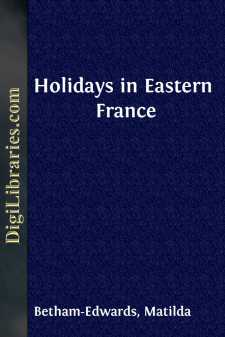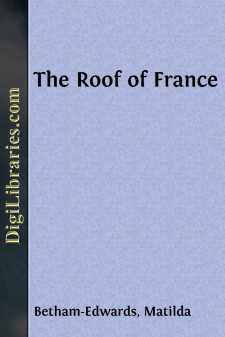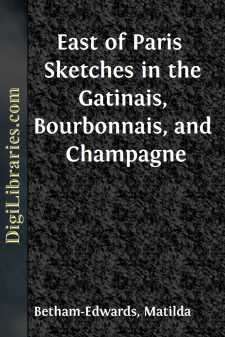Categories
- Antiques & Collectibles 13
- Architecture 36
- Art 48
- Bibles 22
- Biography & Autobiography 815
- Body, Mind & Spirit 144
- Business & Economics 28
- Children's Books 18
- Children's Fiction 14
- Computers 4
- Cooking 94
- Crafts & Hobbies 4
- Drama 346
- Education 58
- Family & Relationships 59
- Fiction 11834
- Games 19
- Gardening 17
- Health & Fitness 34
- History 1378
- House & Home 1
- Humor 147
- Juvenile Fiction 1873
- Juvenile Nonfiction 202
- Language Arts & Disciplines 89
- Law 16
- Literary Collections 686
- Literary Criticism 179
- Mathematics 13
- Medical 41
- Music 40
- Nature 179
- Non-Classifiable 1768
- Performing Arts 7
- Periodicals 1453
- Philosophy 65
- Photography 2
- Poetry 896
- Political Science 203
- Psychology 44
- Reference 154
- Religion 515
- Science 126
- Self-Help 85
- Social Science 83
- Sports & Recreation 34
- Study Aids 3
- Technology & Engineering 59
- Transportation 23
- Travel 463
- True Crime 29
Our website is made possible by displaying online advertisements to our visitors.
Please consider supporting us by disabling your ad blocker.
Holidays in Eastern France
Description:
Excerpt
CHAPTER I.
THE VALLEY OF THE MARNE.
How delicious to escape from the fever heat and turmoil of Paris during the Exhibition to the green banks and sheltered ways of the gently undulating Marne! With what delight we wake up in the morning to the noise, if noise it can be called, of the mower's scythe, the rustle of acacia leaves, and the notes of the stock-dove, looking back as upon a nightmare to the horn of the tramway conductor, and the perpetual grind of the stone-mason's saw. Yes! to quit Paris at a time of tropic heat, and nestle down in some country resort is, indeed, like exchanging Dante's lower circle for Paradise. The heat has followed us here, but with a screen of luxuriant foliage ever between us and the burning blue sky, and with a breeze rippling the leaves always, no one need complain.
With the cocks and the hens, and the birds and the bees, we are all up and stirring betimes; there are dozens of cool nooks and corners if we like to spend the morning out of doors, and do not feel enterprising enough to set out on an exploring expedition by diligence or rail. After the midday meal everyone takes a siesta, as a matter of course, waking up between four and five o'clock for a ramble; wherever we go we find lovely prospects. Quiet little rivers and canals winding in between lofty lines of poplars, undulating pastures and amber cornfields, picturesque villages crowned by a church spire here and there, wide sweeps of highly cultivated land interspersed with rich woods, vineyards, orchards and gardens—all these make up the scenery familiarized to us by some of the most characteristic of French painters.
Just such tranquil rural pictures have been portrayed over and over again by Millet, Corot, Daubigny, and in this very simplicity often lies their charm. No costume or grandiose outline is here as in Brittany, no picturesque poverty, no poetic archaisms; all is rustic and pastoral, but with the rusticity and pastoralness of every day.
We are in the midst of one of the wealthiest and best cultivated regions of France moreover, and, when we penetrate below the surface, we find that in manner and customs, as well as dress and outward appearance, the peasant and agricultural population, generally, differ no little from their remote country-people, the Bretons. In this famous cheese-making country, the "Fromage de Brie" being the speciality of these rich dairy farms, there is no superstition, hardly a trace of poverty, and little that can be called poetic. The people are wealthy, laborious, and progressive. The farmers' wives, however hard they may work at home, wear the smartest of Parisian bonnets and gowns when paying visits. I was going to say when at church, but nobody does go here!
It is a significant fact that in the fairly well to do educated district, where newspapers are read by the poorest, where well-being is the rule, poverty the exception, the church is empty on Sunday, and the priest's authority is nil. The priests may preach against abstinence from church in the pulpits, and may lecture their congregation in private, no effect is thereby produced....




